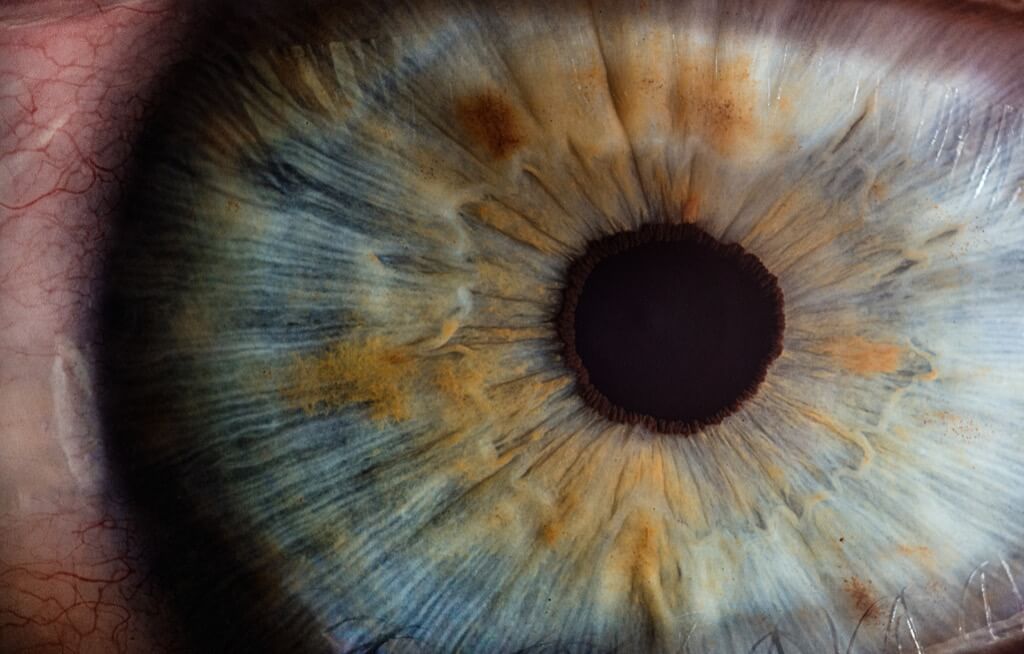When you glance at a clear sky, have you ever noticed tiny, cobweb-like figures or patches floating in your vision? These are called “eye floaters.” Let’s unravel the science behind them.
Eye floaters are not mere optical illusions. They’re real and are caused by fragments of the gel-like substance in our eyes. This gel is known as the vitreous humor, or simply the “vitreous.” It acts as a cushion, filling the space between your retina and lens, ensuring your eye maintains its round shape. Comprising 99% water and a mere 1% of other elements like hyaluronic acid and collagen, the vitreous has a primary role in maintaining the eye’s structure.
Over time, the collagen and hyaluronic acid within the vitreous can disintegrate, leading to the release of water molecules from the hyaluronic acid. This forms a watery core in the vitreous. As we grow older, parts of this mixture can detach and float in this core. When light passes through these floating fragments, shadows are cast on your retina, which we perceive as eye floaters.
Youngsters, especially children and teenagers, rarely experience these floaters. Their vitreous is still firm and hasn’t started to break down. However, they might sometimes see a different kind of floater that’s not in the vitreous. Found in the Premacular Bursa atop the retina, these floaters seem large due to their proximity to the retina, but are quite tiny. Their minuscule size makes addressing them a challenge.
Some Fun Facts About Eye Floaters
- The brain’s adaptability is remarkable. If these floaters remained static, the brain would adjust, making us unaware of their presence. Just like blood vessels in our eyes which obstruct light but go unnoticed as they are stationary.
- Ever wondered why these floaters become prominent against a bright blue sky? It’s because our pupils shrink, limiting light entry, which makes these floaters more discernible.
- A floater’s size and form typically remain unchanged throughout one’s life.
- The term for seeing eye floaters is “Myodesopsia.”
- Observing a sudden increase in floaters or experiencing light flashes warrants a visit to an eye specialist. A detaching retina might be the culprit, demanding immediate attention.
- The retina can get damaged due to tugs from the floaters. If untreated, there’s a risk of the retina detaching in half the cases.
- Experiencing “light flashes” without an actual light source? That’s “photopsia.” It can arise due to various reasons, including vitreous separation or a significant blow to the head.
- Migraines, which result from spasms in the brain’s blood vessels, can also manifest as light flashes. In such cases, both eyes experience these flashes, often followed by an intense headache.
- As we age, the risks associated with our eyes increase. By the age of 80, half of the population will experience vitreous detachment.
- Post vitreous detachment, the chances of a retinal tear accompanied by light flashes are 15%. There’s a 50% likelihood of complete retinal detachment.
- Those with nearsightedness face a higher risk of vitreous detachments due to the shape of their eyes.
- Surgical interventions are available for those whose vision is significantly hampered by floaters. Typically, the vitreous gel is replaced with a saline solution.
- A detaching retina might make you perceive numerous tiny dots. These are blood particles leaking into the vitreous.
What Can I Do About My Eye Floaters?
Are eye floaters harmful to my vision?
While eye floaters can be a nuisance, they’re usually harmless and often don’t impact your vision significantly. However, a sudden increase in floaters, especially if accompanied by flashes of light or a shadow in your peripheral vision, might indicate a more serious issue, such as a retinal tear.
Will my eye floaters go away on their own?
Over time, you might notice your eye floaters become less noticeable. They may settle and move out of your line of sight, giving the impression that they have disappeared. However, while some floaters might reduce or vanish, others may stay or even increase with age.
Can I prevent eye floaters?
There’s no guaranteed way to prevent eye floaters. However, protecting your eyes from injury, wearing sunglasses in bright light, and managing health conditions that might contribute to floaters (like diabetes) can be beneficial. Regular eye check-ups ensure you’re on top of any potential issues.
Is there a treatment to remove floaters from my eyes?
While most floaters don’t require treatment, if they’re significantly affecting your quality of life or vision, consult an eye specialist. There are procedures, such as a vitrectomy, where the vitreous is replaced with a saline solution, but these come with risks. Laser therapy is another option that can break up floaters, making them less noticeable.
Can dietary choices impact eye floaters?
While there’s no direct correlation between diet and eye floaters, a balanced diet rich in antioxidants can support overall eye health. Ensure you’re getting enough Vitamin C, E, and Zinc. Also, keep yourself hydrated, as this helps maintain the vitreous fluid’s consistency.
How often should I get my eyes checked if I have floaters?
If you’ve noticed a few floaters that don’t change over time, your regular eye exams every one to two years should suffice. However, if you observe a sudden increase in floaters or other symptoms like light flashes, you should consult an eye specialist immediately.
For more insights and detailed information on this topic and others, feel free to visit our contact page and get in touch with our expert, Isabella Van Der Merve.




